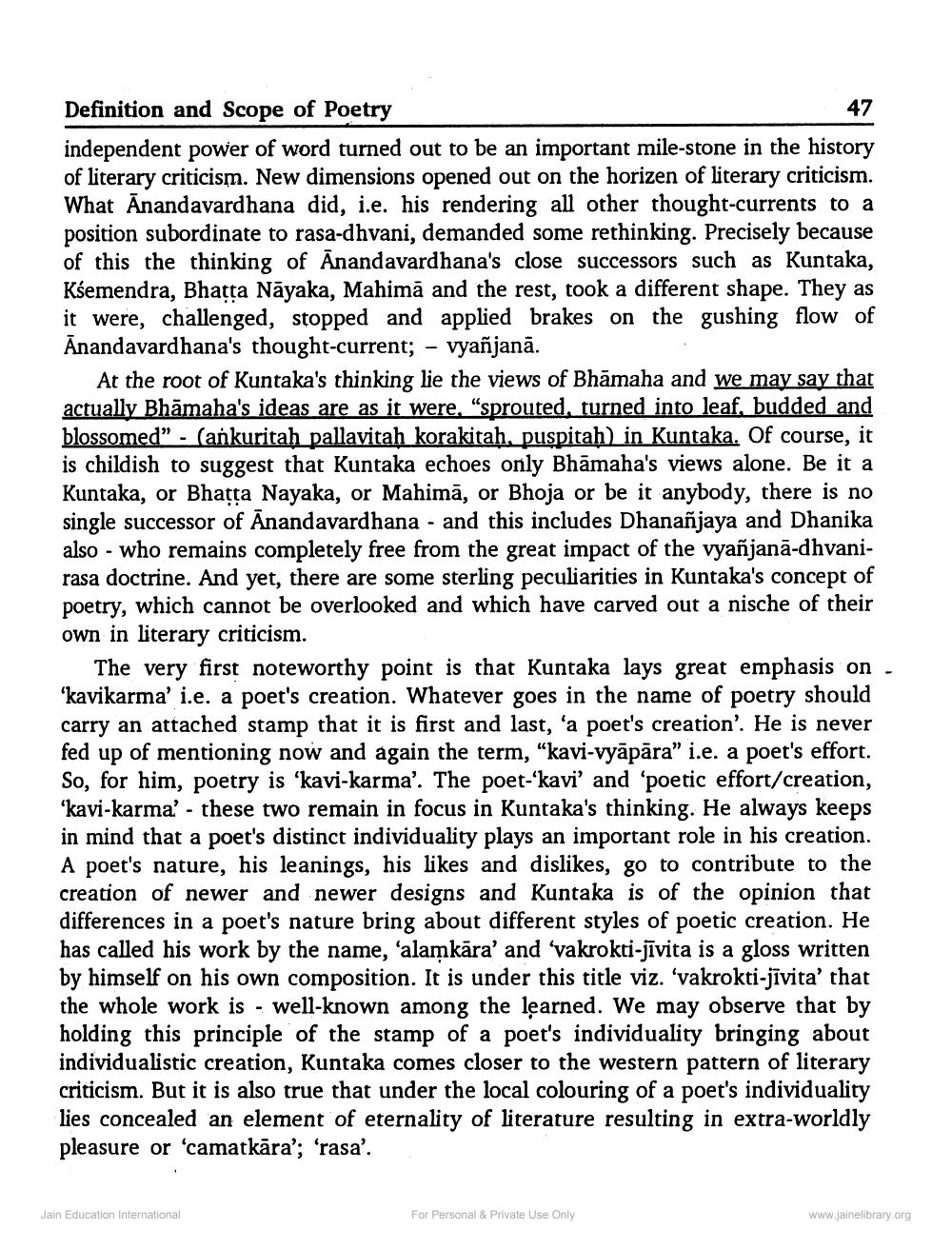________________
Definition and Scope of Poetry
47 independent power of word turned out to be an important mile-stone in the history of literary criticism. New dimensions opened out on the horizen of literary criticism. What Ānandavardhana did, i.e. his rendering all other thought-currents to a position subordinate to rasa-dhvani, demanded some rethinking. Precisely because of this the thinking of Anandavardhana's close successors such as Kuntaka, Kśemendra, Bhatta Nāyaka, Mahim, and the rest, took a different shape. They as it were, challenged, stopped and applied brakes on the gushing flow of Anandavardhana's thought-current; - vyañjanā.
At the root of Kuntaka's thinking lie the views of Bhāmaha and we may say that actually Bhāmaha's ideas are as it were, "sprouted, turned into leaf, budded and blossomed" - (ankuritah pallavitah korakitah, puspitah) in Kuntaka. Of course, it is childish to suggest that Kuntaka echoes only Bhāmaha's views alone. Be it a Kuntaka, or Bhatta Nayaka, or Mahimā, or Bhoja or be it anybody, there is no single successor of Anandavardhana - and this includes Dhananjaya and Dhanika also - who remains completely free from the great impact of the vyañjanā-dhvanirasa doctrine. And yet, there are some sterling peculiarities in Kuntaka's concept of poetry, which cannot be overlooked and which have carved out a nische of their own in literary criticism.
The very first noteworthy point is that Kuntaka lays great emphasis on - ‘kavikarma' i.e. a poet's creation. Whatever goes in the name of poetry should carry an attached stamp that it is first and last, 'a poet's creation'. He is never fed up of mentioning now and again the term, “kavi-vyāpāra” i.e. a poet's effort. So, for him, poetry is 'kavi-karma'. The poet-kavi' and 'poetic effort/creation, kavi-karma' - these two remain in focus in Kuntaka's thinking. He always keeps in mind that a poet's distinct individuality plays an important role in his creation. A poet's nature, his leanings, his likes and dislikes, go to contribute to the creation of newer and newer designs and Kuntaka is of the opinion that differences in a poet's nature bring about different styles of poetic creation. He has called his work by the name, 'alamkāra' and 'vakrokti-jīvita is a gloss written by himself on his own composition. It is under this title viz. 'vakrokti-jīvita' that the whole work is - well-known among the learned. We may observe that by holding this principle of the stamp of a poet's individuality bringing about individualistic creation, Kuntaka comes closer to the western pattern of literary criticism. But it is also true that under the local colouring of a poet's individuality lies concealed an element of eternality of literature resulting in extra-worldly pleasure or 'camatkāra'; 'rasa'.
Jain Education International
For Personal & Private Use Only
www.jainelibrary.org




